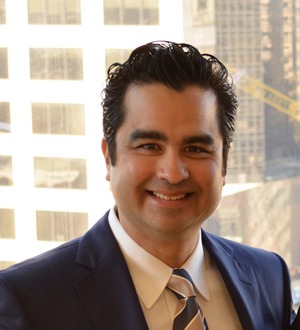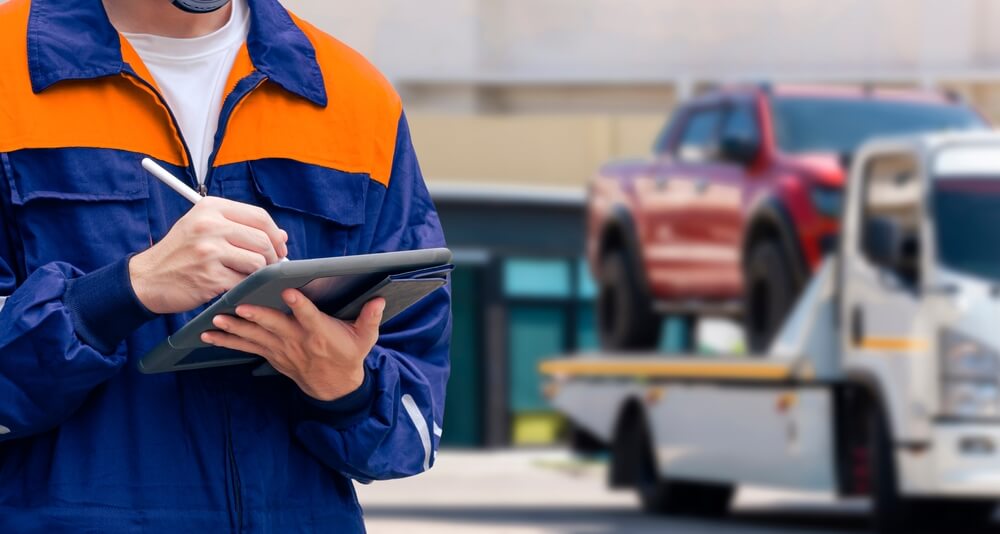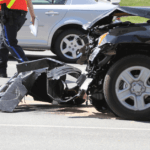
Partner at AKD Lawyers
Practice Areas: Personal Injury

Truck accidents in Louisiana can be devastating, leading to severe injuries, financial losses, and complex legal battles. You probably have a lot of questions concerning your rights, your legal options, and what to do next if you or a loved one has been in a truck accident.
Understanding how Louisiana trucking laws work and what compensation you may be entitled to is crucial for protecting yourself. At AKD Law, we help accident victims navigate the legal system and fight for the compensation they deserve.
This guide answers some of the most common questions after a Louisiana truck accident, covering everything from liability and insurance claims to compensation and legal timelines.
What Should You Do Immediately After a Truck Accident?
After a truck accident, your actions can impact your ability to file a claim successfully. The priority is safety—check yourself and others for injuries and call 911 for medical assistance [if needed]. Even if injuries seem minor, seeking medical attention is crucial, as some symptoms may appear later.
Law enforcement should be called to the scene to file an official accident report, which will serve as key evidence in your claim. Take photos of the accident site, damage to vehicles, skid marks, road conditions, and any visible injuries. If there are witnesses, collect their contact information.
It is also essential to notify your insurance company but be cautious about what you say. Insurance adjusters often try to minimize payouts, so avoid admitting fault or giving recorded statements without speaking to a lawyer first.

Who Can Be Held Liable in a Louisiana Truck Accident?
Determining liability in a truck accident is more complex than in a regular car crash. Depending on the circumstances of the accident, multiple parties may be responsible.
Truck drivers can be held liable if negligence plays a role, such as reckless driving, fatigue, distracted driving, or driving under the influence. However, trucking companies may also be responsible, especially if they fail to maintain their fleet, pressure drivers to exceed hours-of-service limits, or neglect proper hiring practices.
In some cases, liability extends beyond the driver and the trucking company. Manufacturers of defective truck parts, cargo loading companies that improperly secured freight, or even government entities responsible for hazardous road conditions could share responsibility.
Louisiana follows a comparative fault rule, meaning your compensation may be reduced if you are found partially at fault for the accident.
“Louisiana follows a comparative fault system, meaning your compensation can be reduced if you are found partially responsible for the accident.”
How Do Truck Accident Claims Differ from Car Accident Claims?
Truck accident claims are typically more complex and involve more extensive insurance policies than car accident claims. Due to the sheer size and weight of commercial trucks, accidents often result in catastrophic injuries or fatalities, leading to higher compensation amounts.
Unlike car accidents, where liability usually rests with one or two parties, truck accident claims may involve multiple defendants, including the driver, trucking company, cargo loaders, or manufacturers. This makes the legal process more complicated and requires thorough investigation.
Insurance policies for commercial trucks also have higher coverage limits, often in the millions, which means insurance companies aggressively defend claims to avoid large payouts.
Comparison of Car vs. Truck Accident Claims in Louisiana
|
Factor |
Car Accidents |
Truck Accidents |
| Severity of Injuries | Moderate to Severe | Severe to Catastrophic |
| Liable Parties | Usually 1-2 (driver, insurer) | Multiple (driver, company, manufacturer) |
| Insurance Coverage | Standard auto policies | Commercial insurance, higher limits |
| Legal Complexity | Less complex | Highly complex due to federal/state regulations |
Understanding Louisiana Trucking Laws and Regulations
Truck accidents are subject to federal and Louisiana state laws. The Federal Motor Carrier Safety Administration (FMCSA) regulates commercial trucks, including hours-of-service rules, vehicle maintenance requirements, and driver qualifications.
Louisiana has additional state-specific trucking laws, such as weight restrictions, roadway restrictions, and licensing requirements. If a trucking company or driver violates these laws, it can strengthen your claim by proving negligence.
“According to the Federal Motor Carrier Safety Administration (FMCSA), over 4,000 fatal truck crashes occur in the U.S. annually, with a significant portion happening in Louisiana.”
What Compensation Can You Recover After a Truck Accident?
Victims of truck accidents may be entitled to various types of compensation, depending on the severity of injuries and damages. Compensation may include:
- Medical expenses for emergency treatment, surgeries, rehabilitation, and long-term care
- Lost wages and loss of future earning capacity if you are unable to work
- Pain and suffering from physical pain, emotional trauma, and mental distress
- Property damage for vehicle repairs or replacement
- Wrongful death damages if a loved one was killed in the accident
How Long Do You Have to File a Claim? (Statute of Limitations in Louisiana)
In Louisiana, the statute of limitations for personal injury claims is one year from the date of the accident, as per La. Civ. Code Art. 3492. This means that if you do not file a lawsuit within this timeframe, you may lose your right to compensation.
Exceptions may apply in cases involving minors or wrongful death, so it is crucial to consult with a lawyer as soon as possible.

Common Challenges in Truck Accident Claims
Filing a truck accident claim is not always straightforward. Insurance companies often delay, deny, or undervalue claims, and trucking companies may destroy or withhold strong evidence, such as driver logs and black box data.
Proving negligence requires strong evidence, including accident reports, medical records, witness testimony, and expert analysis. A lawyer can help gather the necessary documentation and negotiate with insurers.
“Insurance companies often try to minimize payouts by shifting blame or downplaying injuries. Having an experienced Louisiana truck accident lawyer can make a difference in your claim’s outcome.”
FAQs
How much compensation can I receive after a Louisiana truck accident?
The amount varies based on medical expenses, lost income, property damage, and pain and suffering. Severe cases involving permanent disability or wrongful death may lead to higher settlements.
What evidence is crucial for a truck accident claim?
Necessary evidence includes police reports, medical records, eyewitness statements, black box data, and trucking company maintenance logs.
Can I still recover compensation if I was partially at fault?
Yes. Under Louisiana’s comparative fault law, your compensation is reduced based on your percentage of fault. For example, if you were 20% at fault, your recovery would be reduced by 20%.
How long does a truck accident claim take to settle?
The timeline varies. Some claims settle within a few months, while complex cases involving serious injuries or disputed liability can take a year or longer.
When should I contact a truck accident lawyer?
It is best to contact a lawyer immediately after an accident. A lawyer can assist with evidence collection, insurance discussions, and protecting your legal rights.
Conclusion
A truck accident can be life-changing, leaving victims with serious injuries and financial burdens. Knowing what to do after an accident and being aware of your legal rights can have a big impact on your case.
If you or a loved one has been involved in a Louisiana truck accident, AKD Law can help. Our experienced team is dedicated to protecting accident victims and securing the compensation they deserve. Don’t navigate this complex process alone—get the legal support you need today.
Categories

In 2003, after being dissatisfied with the quality of legal care for victims of car accidents, Roderick ‘Rico’ Alvendia sought to establish a new firm focused on providing high-quality legal services to aid injured victims and their families. J. Bart Kelly, sharing Rico’s passion for upholding justice, joined the firm later that year, and established a partnership.





